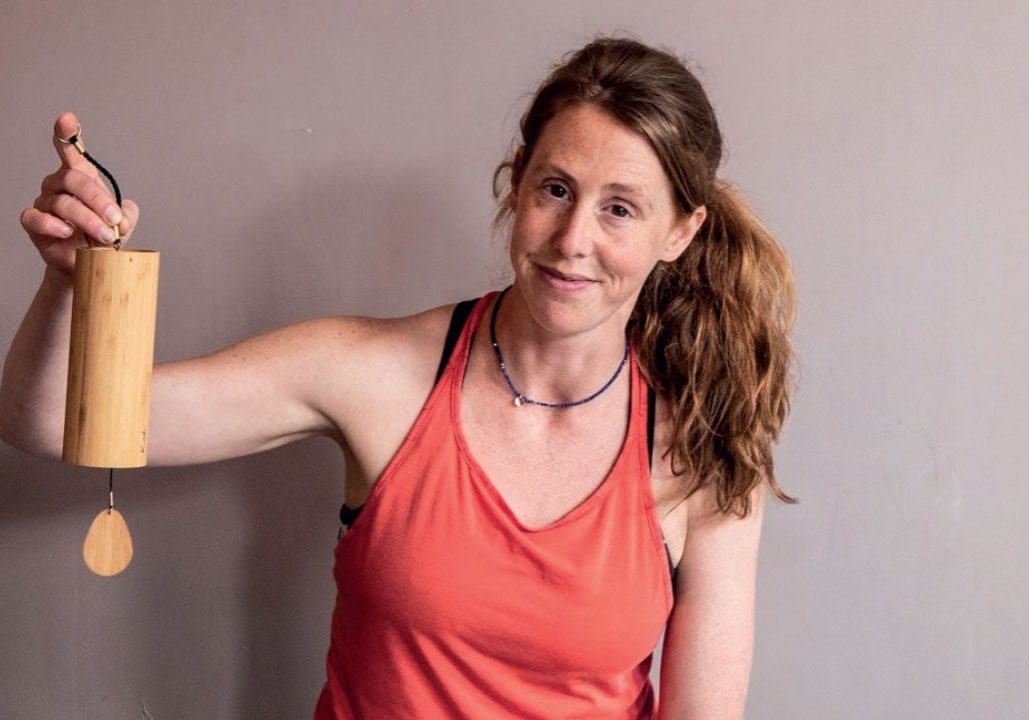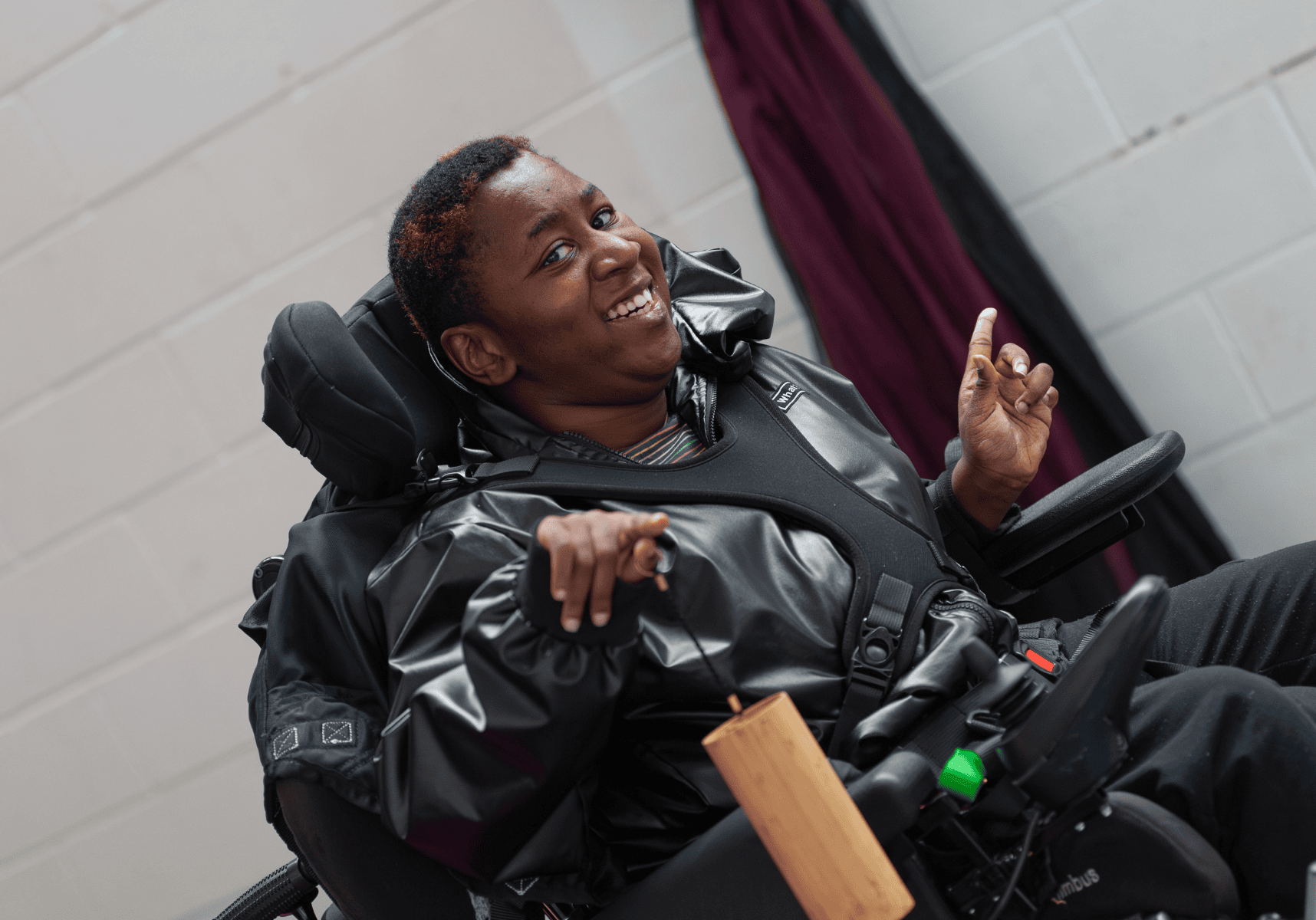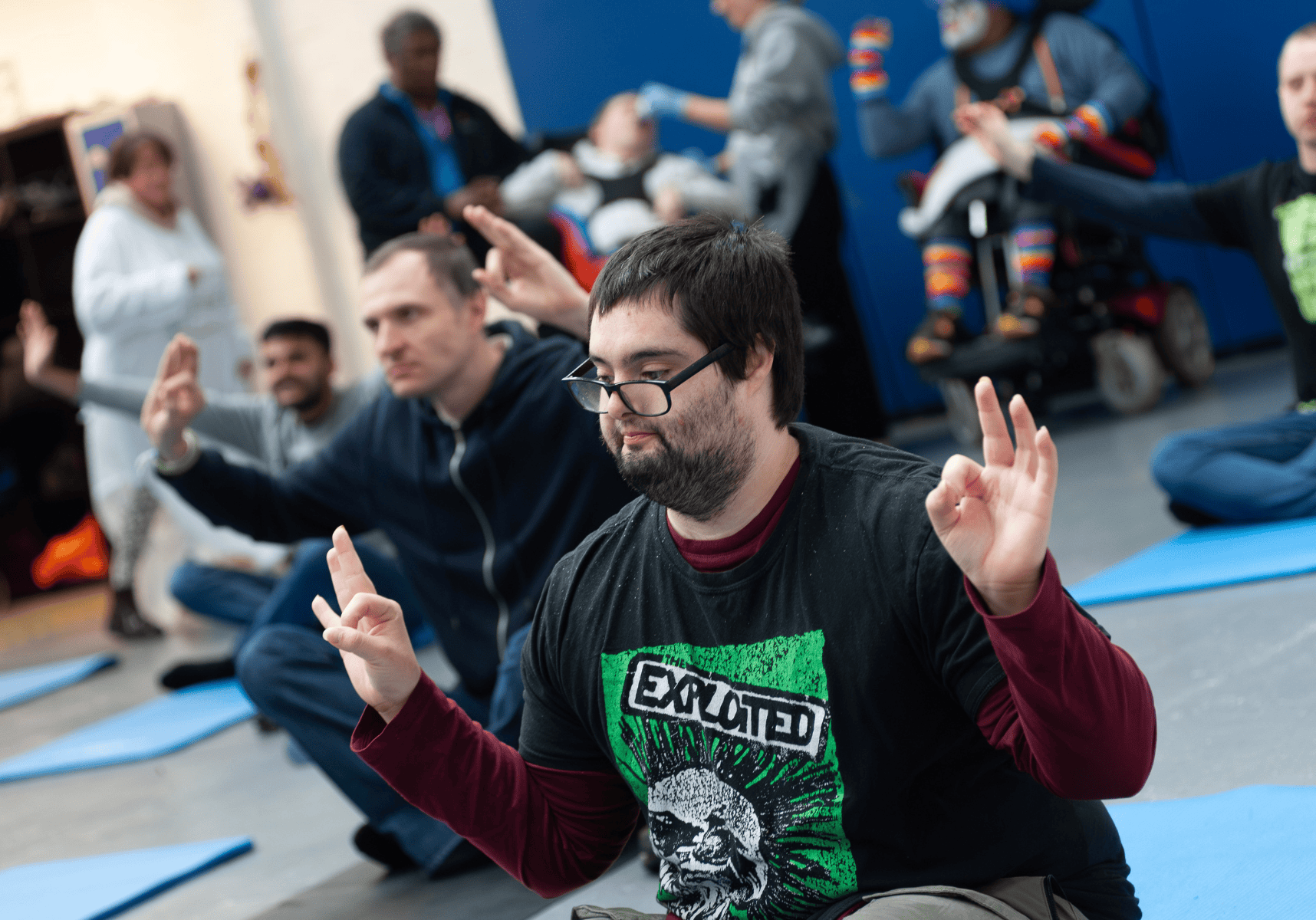
Tailoring your teaching for learning disabilities
Discover the transformative power of yoga for those with learning disabilities and how specialist teacher training can help you create an inclusive and empowering practice
Reading time: 4-5 minutes
Yoga has long been celebrated for its mental and physical benefits, but Ellie Firth, a mental health and autism researcher, saw an even greater potential. For her, the realisation that yoga could address movement control, sensory processing and mental health challenges for individuals with learning disabilities (LD) was groundbreaking. “Yoga is an effective way to support people without needing them to explain their struggles. It’s experienced in a fun, non-threatening group setting — more than just physical therapy and with a totally different approach to talking therapies,” she explains.
With over 1.5 million people in the UK living with LD, the potential for yoga to improve lives is immense. It fosters physical strength and balance, reducing the risk of falls, while breathwork strengthens respiratory health and improves sleep — a common challenge for those with LD. Beyond the physical, yoga helps individuals process sensory input, manage sensitivities and develop emotional awareness, offering tools for self-regulation and greater mental stability. Although not quite a magic wand, yoga is a powerful preventative tool, helping people avoid physical injuries, ease chronic pain and fend off the mental strains — like anxiety and low moods — that they’re often more prone to.
Five years ago, Firth founded Umbrella Yoga to bring these benefits to life, providing tailored yoga sessions for those with additional needs in West Yorkshire. The impact was immediately apparent — participants not only experienced the physical and mental health benefits promised by the research, but they also reported a profound sense of joy and belonging. Organisations like Headway, the Brain Injury Association, echoed these sentiments, saying, “Spirits were lifted, and connections formed, without the pressure to talk when people didn’t feel like it.”
Now, Umbrella Yoga is expanding its mission, offering evidence-based training courses to empower yoga teachers across the UK to expand their professional offering to those with learning disabilities.
These specialised programmes equip instructors with the skills to adapt poses, simplify instructions and use non-verbal communication. The training also examines common challenges such as sensory sensitivities, respiratory issues and mental health struggles, ensuring accessible, effective, and safe practices.
By tailoring yoga for individuals with LD, teachers can create person-centred sessions that unlock the full potential of movement, breathwork, connection and self-expression, and share in the joy of transforming lives.
Benefits of yoga for adults with learning disabilities
Yoga effectively supports individuals with LD by addressing key health challenges:
Mental Health: Encourages body awareness and emotional regulation, preventing mental health issues and fostering stability.
Sensory Processing: Improves focus on bodily sensations, aiding in managing sensory sensitivities, stress, and concentration.
Physical Wellbeing: Builds strength, balance, and mobility, combating inactivity and helping to maintain healthy weight, as well as preventing falls.
Breathing and Sleep: Strengthens respiratory health and enhances sleep quality, which is often poor among those with LD.
Yoga’s adaptable approach ensures accessibility and empowers individuals to improve their wellbeing and quality of life.
Umbrella Yoga’s 30-hour further training course, accredited by Yoga Alliance Professionals, is running in June/July 2025, with early bird pricing available until 7th February 2025. To learn more, visit: umbrellayoga.co.uk or connect on Instagram @umbrella.yoga.uk
Images: Chris Chinnock. From Our Creative Connection






